Slugs and snails are unsightly creatures that can ruin your plants quickly, so preventing them from spreading is important. Some slugs and snails look very similar, so it is important to identify them based on their habits or appearance. Slugs and snails often reside in damp areas or near water sources, so checking for dampness and looking for tracks around plants may help identify these pests.
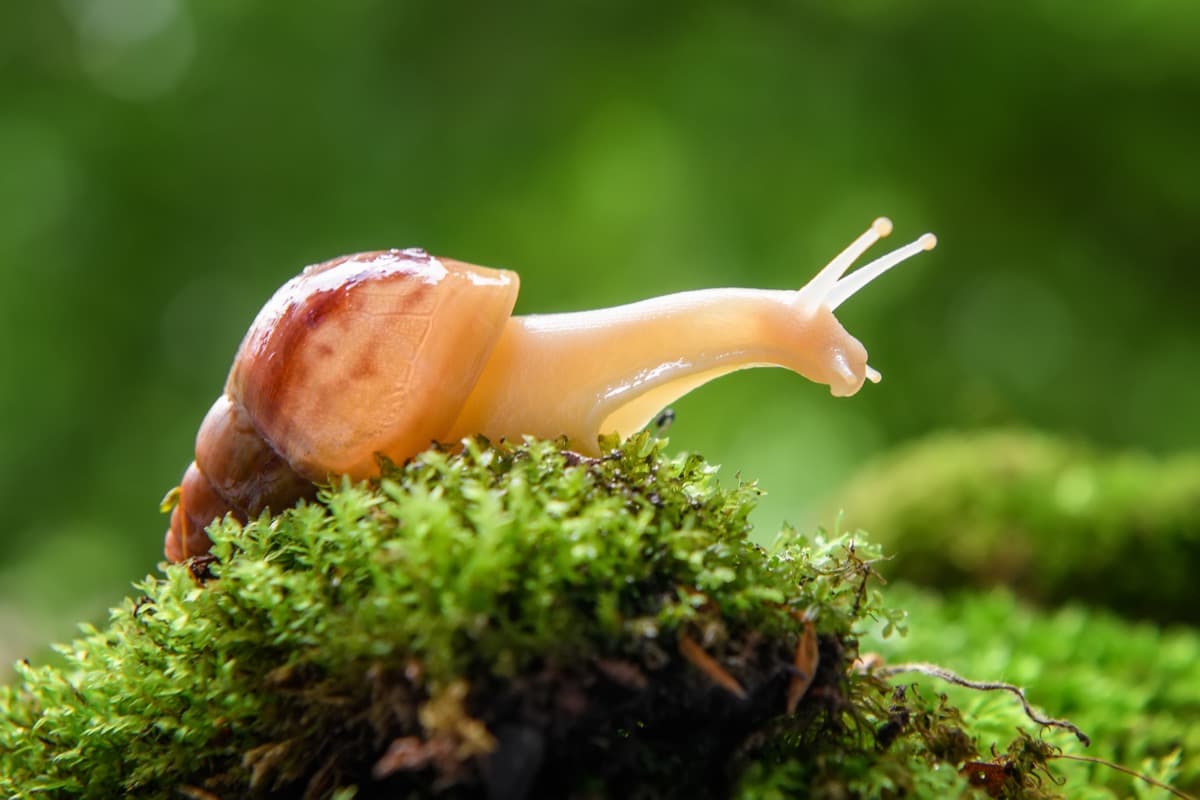
They can be pesky, they can be destructive, and they can be downright annoying. If you’re anything like most people, you want to do everything possible to prevent them from invading your home and causing trouble.
Best Ways to Prevent Pesky Slugs and Snails in Your Garden Plants
Coffee Grounds
Slugs and snails are pests that can cause a lot of damage to your garden. There are many ways to prevent them from damaging your plants, but one of the best is to keep your coffee grounds around. Coffee grounds are a great deterrent for slugs and snails because they love the smell of coffee. The grounds will also stick to their skin and slow them down as they try to cross a boundary. You can even put some coffee grounds around the base of plants to keep them away from the roots.
Beer Trap
Homeowners can use a few techniques to deter slugs and snails from invading their gardens. This trap employs carbon dioxide gas to kill the pests. There are a few ways to prevent pesky slugs and snails from ruining your garden, either by trapping them or repelling them with the help of natural deterrents. One popular way to trap slugs and snails is with beer traps. Fill a jar or container with beer, place it in a sunny spot, and watch as the critters crawl into the suds to drink. Once they get in, the smell of the beer will drive them away.
Diatomaceous Earth
Diatomaceous Earth is a natural, safe, and effective way to deter slugs and snails from eating plants. To use diatomaceous earth as an effective deterrent against slugs and snails, start by sprinkling it around the plants where you think these pests might lurk. Be careful not to get it on your hands or clothes, though once it’s on the skin, it can irritate. If your garden is particularly prone to these critters, adding diatomaceous earth to your garden soil may also be effective in keeping them at bay.
In case you missed it: Best Herbs for Tea Garden: What to Grow in a Tea Garden
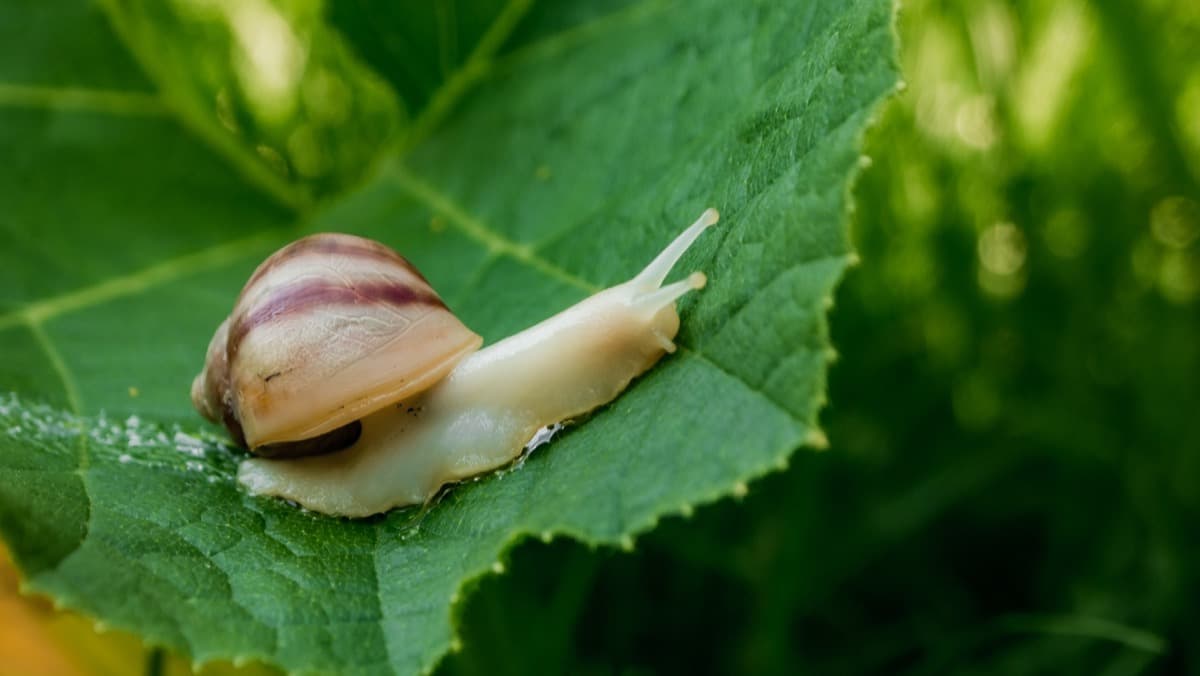
To use diatomaceous earth, mix it with water in a bucket or sprayer. Mist it onto your plants, lawn, and ground cover, and watch the slugs and snails flee. You can also sprinkle the powder around trees and shrubs to keep critters away from fruit and flowers. If you have pets or children, supervise them when using this product. Diatomaceous earth is very sharp and can easily injure small creatures if ingested.
Citrus Traps
There are a few different ways to trap slugs and snails. One way is to use a citrus trap. This trap has a piece of citrus, such as Orange, Lemon, or Grapefruit, that the slug or snail will find irresistible. When the slug or snail climbs onto the citrus piece, it gets trapped and can be disposed of easily.
There are many ways to prevent pesky slugs and snails from spoiling your garden. One of the most effective methods is to use a citrus trap. A citrus trap is a simple but effective way to catch slugs and snails. Place a container with citrus fruit or juice inside your garden and watch as the pests are drawn in by the smell and taste. Once inside, the citrus will rot, killing the slug or snail.
In case you missed it: Insect Pests of Rose Plants: Chemical, Organic, and Natural Control Management
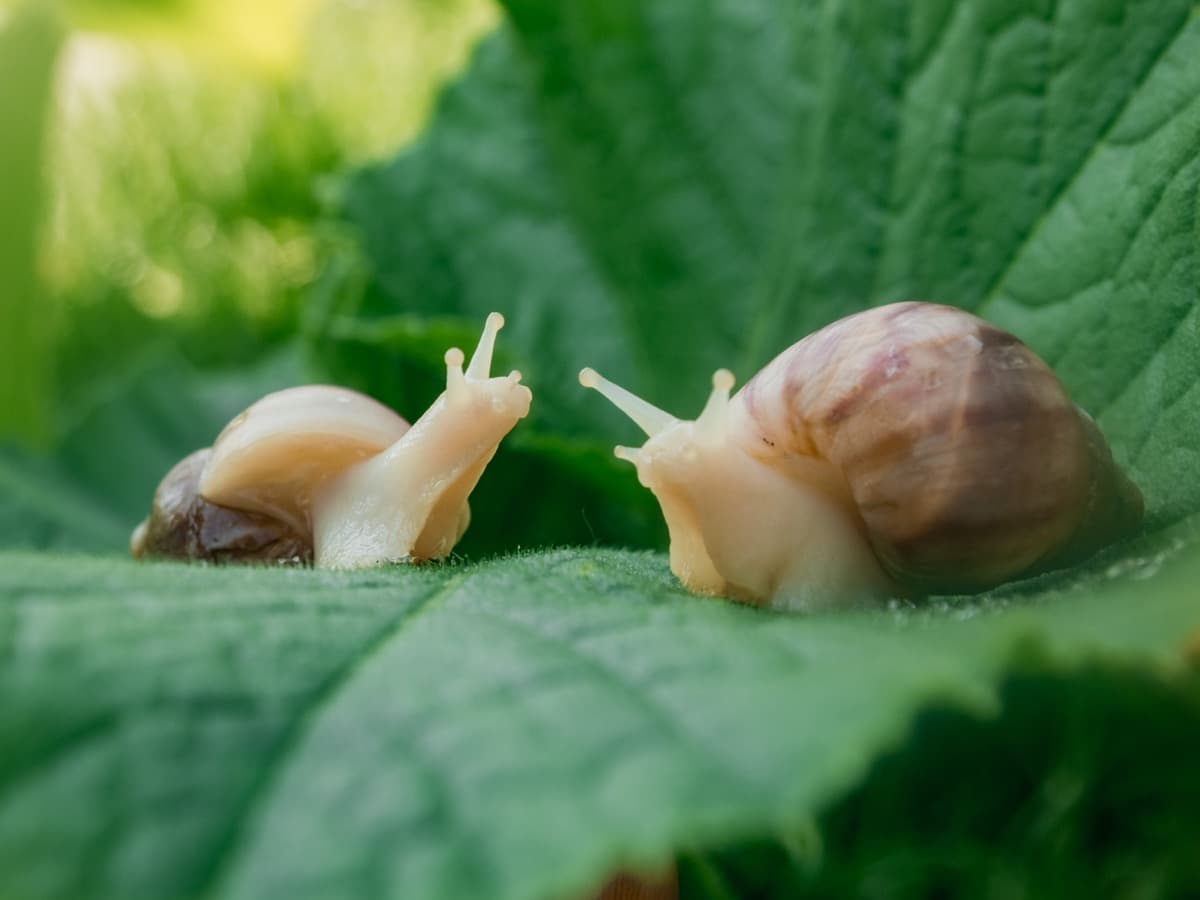
Seaweed
There are many ways to prevent pesky slugs and snails from multiplying, including adding seaweed to your garden or landscaping. Seaweed is a natural predator of these pests, and it can be bought fresh at most markets or stores. When growing your vegetables or flowers, include some seaweed in the soil.
One is to put down some mulch around the base of your plants. This will inhibit them from traveling and eating your plants. You can also place little seaweed around your plants to repel these pests. Finally, regularly clean up any spills or debris around your plants so these pests have nothing to eat.
Gravel, Bark, or Wood Chips
Gravel, bark, or wood chips can keep slugs and snails away from your plants. These materials will not only discourage pests but also help to maintain a clean garden. There are a few ways to prevent pesky slugs and snails from ruining your garden. One option is to use gravel, bark, or wood chips as a deterrent. These materials can be scattered around the garden, making it difficult for pests to crawl or hop.
Slug Repellent/Attractive Plants
One of the best ways to prevent pesky slugs and snails from taking over your garden is to use slug-repellent/attractive plants. Various products are available to help keep these pests away and can be used in outdoor and indoor gardens. Some of the most popular slug repellents include those made with garlic, lemon, peppermint, or cedar oil.
In case you missed it: How to Grow and Care for Forsythia in Your Garden: A Step-By-Step Guide for Beginners
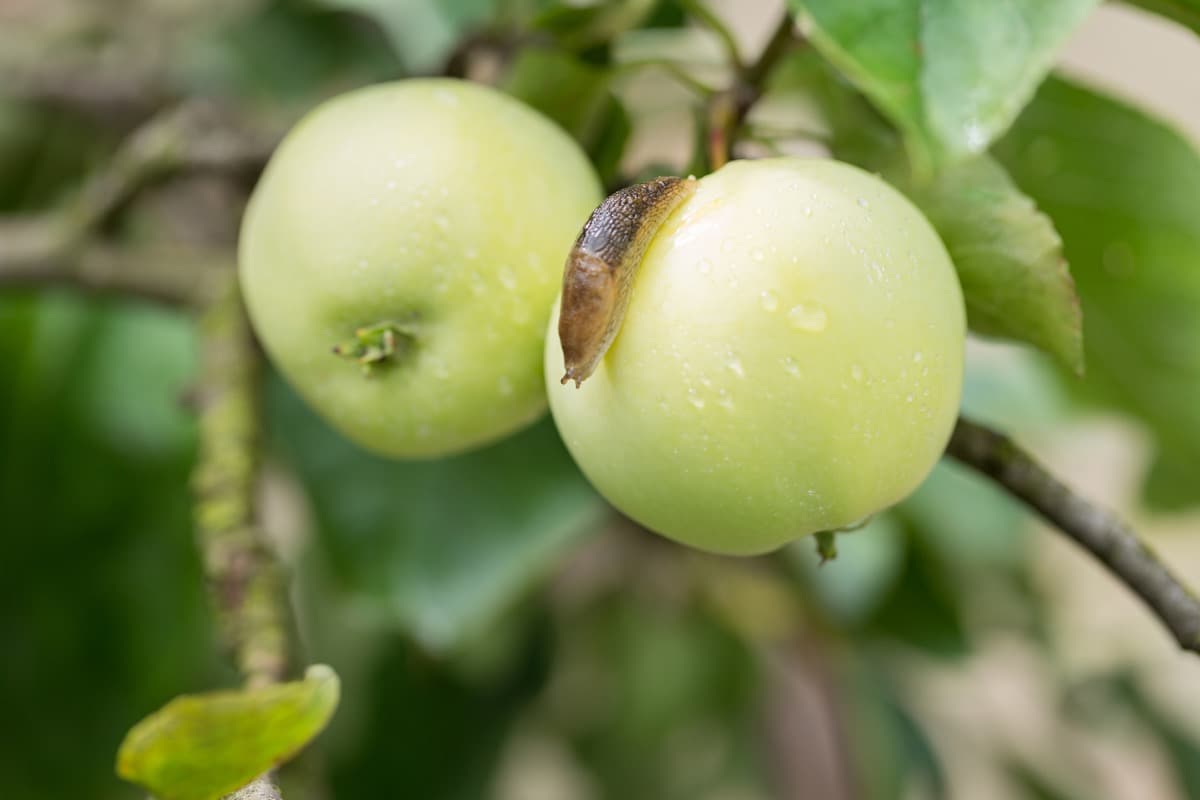
These products work by causing the slug to become sickened or irritated, eventually leading it to leave your garden. Some attractive plants that are effective at repelling slugs and snails include Calendula, Lavender, Thyme, Rosemary, and Marigolds.
Organic Slug Pellets
You must do a few things to help prevent pesky slugs and snails from eating your plants. One way is to use organic slug pellets. Slug pellets are made of organic matter and carbon, which attracts slugs and snails. You can also make a slug bait using apple cider vinegar, garlic, and salt.
Removing by Hand
There are many ways to remove slugs and snails from your garden, but one of the easiest is by hand. Get a container that will hold the slug or snail. This can be a small jar, plastic bin, or coffee can. Fill the container with water and place it where the slug or snail can enter but not leave. Put on rubber gloves and dip your hands into the water. The slug or snail will be attracted to the moisture in your hands and soon float in the water. Lift the slug or snail out of the water and place it in an insecticide-free location away from your plants.
Nematodes
There are many ways to prevent pesky slugs and snails from ruining your garden, houseplants, patio furniture, and more. One of the most natural ways to keep these pests at bay is to use nematodes. Nematodes are small creatures that feed on slug and snail eggs and larvae. They can be purchased online or in some garden centers. To use nematodes in your garden, identify where the slugs and snails live. Add water and let the nematodes do their work. You may need to do this every few weeks for several months to eliminate the pests.
In case you missed it: How to Grow and Care for Daffodils in Containers
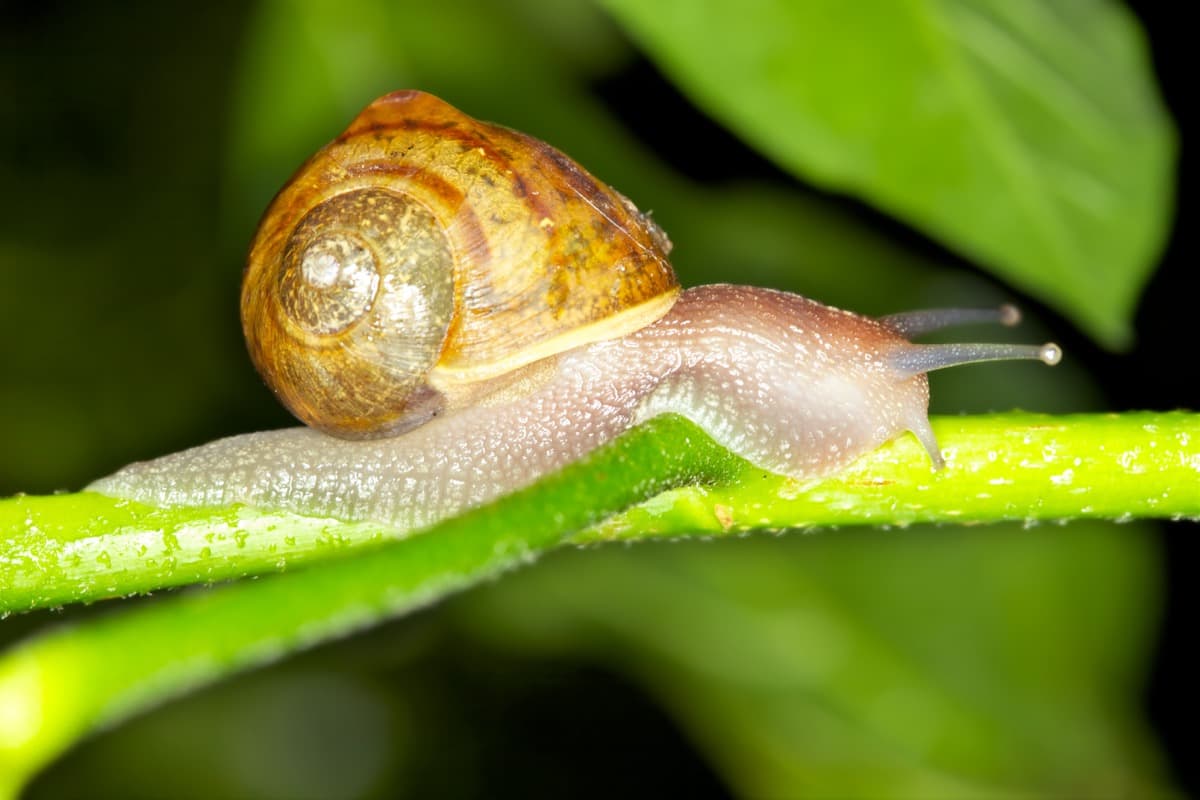
Wheat Bran/Corn Bran
You should do a few things to help keep pesky slugs and snails from ruining your garden. One of the simplest is adding wheat or corn bran to your garden instead of compost. The husks of these grains provide a nice barrier for snails and slugs, keeping them from crawling into your plants. Adding diatomaceous earth to your garden will also help deter these pests. This natural substance comprises shell fragments that cause the snail and slug to shed their outer coating and die when disturbed.
Birds, Ducks, and Chickens
Snails and slugs are common pests in gardens and yards, but there are many natural ways to prevent them from causing problems. One approach is to ensure your garden is well-watered, which will keep the soil moist and snails and slugs from being able to crawl around. You can place pieces of cardboard with holes cut out at the top near your plants for birds, ducks, or chickens that might eat the pests. The birds will peck at the cardboard and hopefully eliminate snails or slugs hiding inside.
Homemade Snail Repellent
There are many ways to prevent pesky snails and slugs from invading your garden or home. Some of the most popular methods include using repellents made from natural ingredients, sealing up cracks and crevices in your property, and installing snail/slug traps. One of the most popular homemade snail repellents is made from cedar oil. Mix 1 cup cedar oil with 2 cups water in a spray bottle to make this repellent.
Spray the mixture around your plants and around any areas where you see snails or slugs congregating. Another effective homemade snail repellent is castor oil. Mix two tablespoons of castor oil with 1-gallon water in a spray bottle to make this repellent. Spray the mixture around your plants and around any areas where you see snails or slugs congregating.
Water Your Gardens in the Evening
One of the best ways to water your garden in the evening is to pour a shovelful of sand or gravel into the bottom of each pot or soil container. This will make it harder for these pests to crawl up and get access to the water. You can add some garlic cloves or onion slices to the soil around vegetables and fruit plants or mix a teaspoon of borax with a quart of water and put this solution around plants before watering.
In case you missed it: Homemade Bug Traps that Catch Unwanted Pests: Benefits of Using Natural Pest Traps
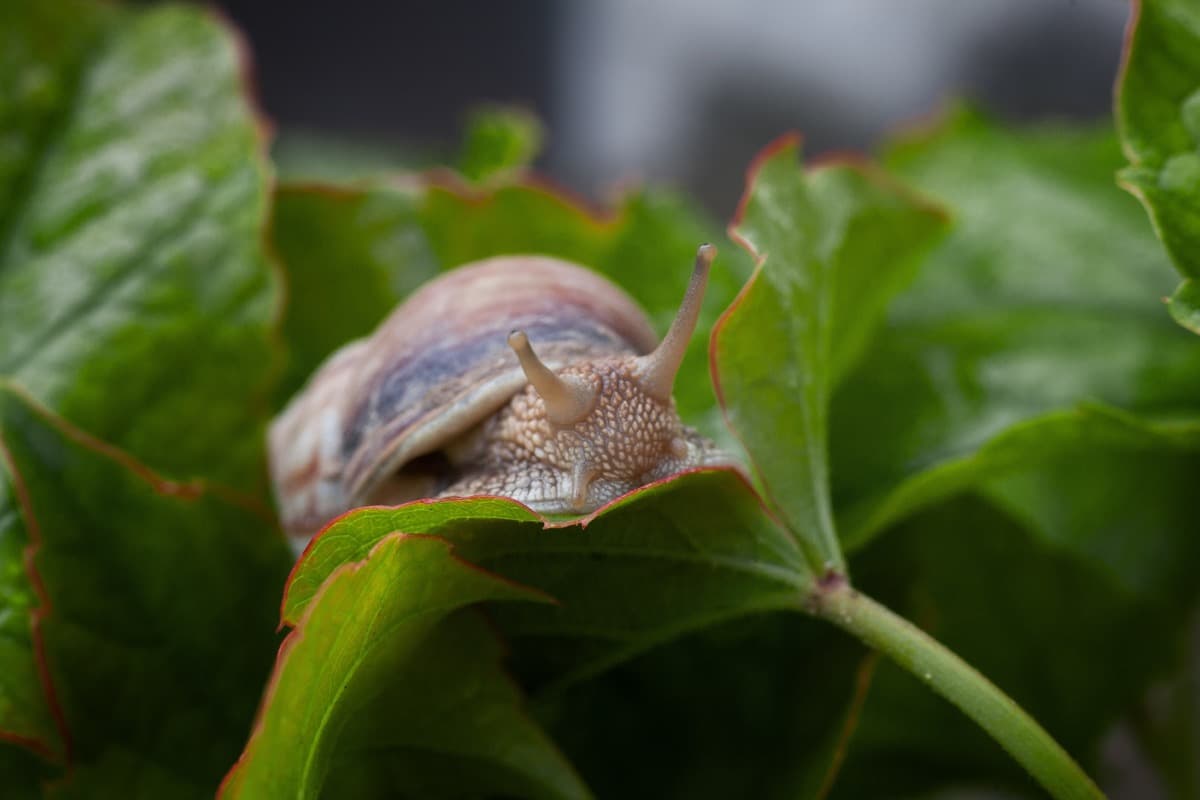
Eggshells
There are many ways to prevent pesky slugs and snails from ruining your garden or patio. One effective way is to use eggshells. Crack an eggshell and spread the inside over the area you want to protect. The snail will avoid walking on the eggshell and move away from the area. Break an eggshell and place it around where you want to discourage the pests.
The shells will act as a natural deterrent and smell terrible to them so they will stay away. You can also place pieces of apple or banana in areas where you see slug or snail activity. These fruity items will attract other animals that eat slugs and snails, which will help control the population.
Conclusion
Homeowners can use a few techniques to help prevent pesky slugs and snails from multiplying. One is to ensure the property is well-maintained, including keeping weeds down and removing debris. Additionally, you should take steps to identify these pests. Knowing their location can help you take the necessary precautions to protect your crops and garden.
- Growing Red Currants at Home for Beginners
- Gardening Techniques in Planting Vegetables
- Where to Place Indoor Plants in Your Home
- How to Grow Tomatoes Organically at Home: A Comprehensive Guide
- Organic Gardening on a Budget: Low-Cost Methods and Materials
- Gongura Seed Germination and Planting Methods
- Cabbage Seed Germination and Selection
- Broccoli Seed Germination and Selection
- Asparagus Seed Germination and Variety Selection
- Seasonal Flower Gardening: Best Practices for Spring, Summer, Fall, and Winter
- How to Grow Hibiscus from Flower
- Plantation Ideas for Home Decoration: A Beginners Guide
- Flower Garden Designs and Layouts for Beginners
- Planting and Spacing Techniques in Papaya: A Beginner’s Guide
- Growing Gold: Essential Techniques for Planting Pineapples
- How to Make Kalanchoe Plant Bushy: Home Remedies and Solutions
- 11 Reasons Why Your Gardenia is Not Blooming: Home Remedies and Solutions
- Eco Elegance: The Guide to Designing a Drought-Tolerant Landscape
- Gardening on a Slope: Strategies for Hillside Landscaping
- Nourish and Flourish: Top Organic Mulches for Thriving House Plants
- Everything You Want to Know about Indian Mogra Flower: Discover Uses and Growing
- Green Thumb Success: Expert Tips for Cultivating Greenhouse Pumpkins All Year Round
- Maximize Growth & Flavor: The Ultimate Guide to Companion Planting in Herb Gardens
- How to Control Rhododendron Problems Naturally: Home Remedies and Organic Ways to Fix Them
- Natural Magic: The Remarkable Benefits of Cinnamon for Plants
- Best Steps to Revive Dying Tulip with Natural and Organic Treatment
- 10 Reasons Why Your Angel Trumpet is Not Blooming: Remedies and Treatment
- How to Fix Periwinkle Leaf and Flower-Related Problems: Natural Remedies and Solutions
- How to Fix Zinnias Leaf and Flower Problems: Discover Natural and Home Remedies
- Organic Steps to Induce Lemon Tree Flowers: A Comprehensive Guide
- Bloom Booster: Crafting the Perfect Homemade Bougainvillea Fertilizer
- Optimizing Growth: A Guide to Applying NPK Fertilizer for Potted Plants
- 10 Best Homemade Fertilizers for Rubber Plant: DIY Recipes and Application Method
- How to Boost Female Pumpkin Flowers: Effective Steps for More Flowers and High Yields
- Transform Your Indoor Garden: Top Benefits of Pink Salt for Houseplants
- 10 Best Homemade Fertilizers for Peacock Plants (Calathea): Easy DIY Guide